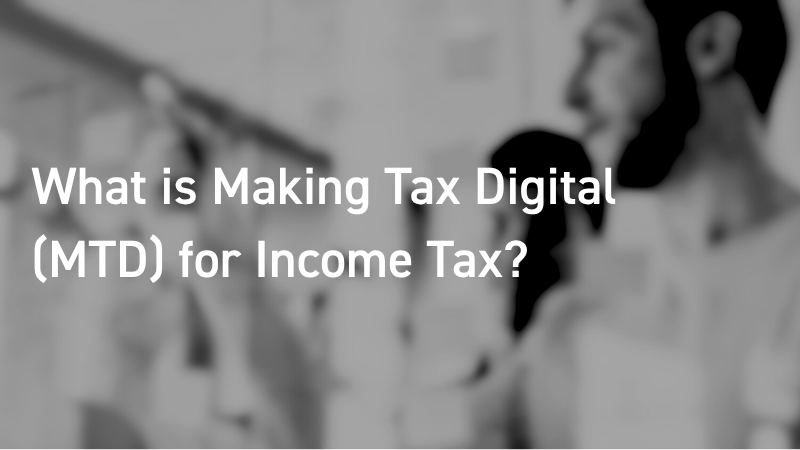
What is Making Tax Digital (MTD) for Income Tax?
MTD is a government initiative intended to modernise the tax system.
It is hoped that MTD will increase taxpayer engagement, improve compliance and encourage digitisation of record keeping.
MTD has three main components: digital records, quarterly filings to HMRC, and a year-end declaration (akin to the current tax return).
Who does MTD apply to and when will it be introduced?
MTD is set to be introduced from 6 April 2026 (2026/27 tax year).
It will apply to individuals with qualifying income over the relevant threshold.
The relevant thresholds are:
2026/27: £50,000
2027/28: £30,000
2028/29: £20,000
Qualifying income is the sum of both self-employed income and property income (if applicable) before the deduction of expenses.
The threshold is applied to the figures reported on the tax return from two tax years before.
For example, the 2026/27 threshold of £50,000 will be applied to the income reported on the 2024/25 tax return.
This ensures that taxpayers will know whether or not MTD will apply to them prior to the start of the tax year.
Will my partnership or company fall within MTD?
No, HMRC have not made any announcements as to when partnerships or companies will fall within MTD.
Furthermore, members of partnerships/LLPs are outside the scope of MTD in respect of their partnership income.
What are the reporting periods and deadlines?
A total of 5 submissions will be required for a particular tax year; this is made up of 4 quarterly submissions and a year-end declaration.
Four quarterly submissions
The quarters and deadlines are as follows:
Period covered Filing deadline
Quarterly update 1 6 April to 5 July 7 August
Quarterly update 2 6 April to 5 October 7 November
Quarterly update 3 6 April to 5 January 7 February
Quarterly update 4 6 April to 5 April 7 May
To better align with accounting dates, taxpayers can choose to make a ‘calendar quarters election’. This would result in the first quarter running from 1 April to 30 June, the second from 1 July to 30 September and so on. The filing deadlines would not change. This approach may be easier where the taxpayer is already filing quarterly VAT returns.
One Year-end declaration
The year-end declaration will allow necessary tax adjustments to be made and will include other income sources.
It is from the year-end declaration that the total tax due will be calculated. The usual 31 January filing deadline will still apply.
Are there any changes to the payment deadlines?
No, the payment deadlines for income tax will remain 31 January following the end of the tax year.
If applicable, payments on account will be payable on 31 January and 31 July as before.
What are the penalties for non-compliance?
A points system will be kept for a 24 month period.
There will be no penalty for the first late filing in that period but thereafter each late filing will lead to a £200 penalty.
How can HW Fisher help?
We will be able to offer solutions to assist with the preparation of MTD filings. Please feel free to contact us for additional guidance and to learn how we can help you.
We’d love to hear from you. To book an appointment or to find out more about our services: